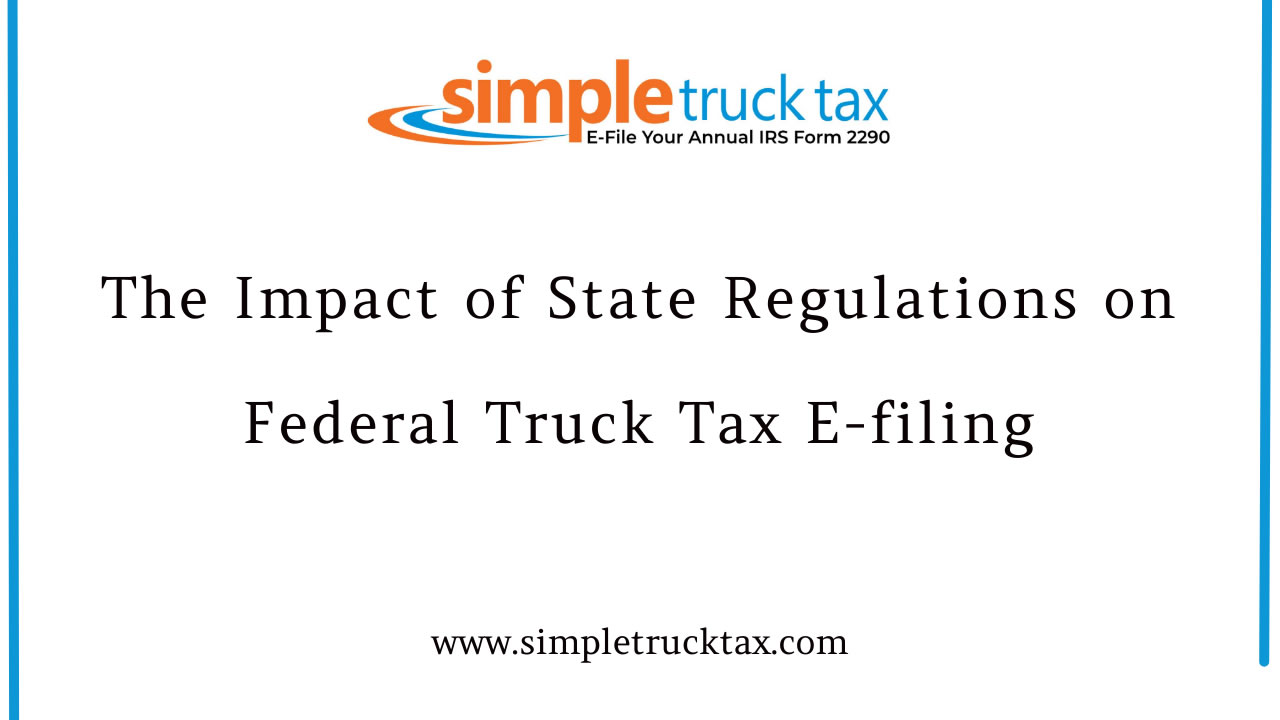
The Impact of State Regulations on Federal Truck Tax E-filing
For many trucking companies looking for ease and quick processing, e-filing federal truck taxes, specifically the IRS Form 2290 for Heavy Vehicle Use Tax (HVUT), has emerged as a preferred option.
While federal requirements are straightforward, state regulations tend to muddle the requirements with additional rules that may lead to misunderstanding and unanticipated challenges. In this article we delve into how state policies impact the e-filing of federal truck taxes and what the trucking companies need to be on the lookout for.
The IRS requires that all vehicles meeting the stipulated gross weight of 55,000 pounds or more pay the HVUT annually and file Form 2290. Alongside paying the tax, e-filing has now specifically been recommended for fleets with 25 or more vehicles since it accelerates processing, reduces mistakes, and yields near-instant Schedule 1 proof.
Moreover, state governments have their individual rules regarding vehicle taxation, tax compliance deadlines, and interrelated registration processes which tend to irregularly coincide with federal policies.
The Filing Deadlines Impacted by State Policies
Some states will not allow registration and renewal of the trucks unless proof of federal HVUT payment is submitted. This means that whether a carrier e-files Form 2290 and receives their Schedule 1, delays or mismatches at state systems can cause hold-ups.
California and New York often tend to have additional checks or extra timelines which are not federally mandated. This is placed along with other documentation which may be required causing undue stress on the carrier, especially with coordinating e-filing on federal and filing at the state level.
Shortcoming of Individual States and Their Effects
Different states impose varying standards within the ambit of compliance HVUT and not all states treat HVUT compliance the same way. The federal filing and accompanying documentation and justification is absent is less meticulously scrutinized in some states, non-compliance will be subjected to harsher undeserved fines.
For carriers who travel through different states, bound by this quasi boundless legal framework, there are many headaches concerning planning taxes as risk with paying unreasonably high taxes alongside missing deadlines for filing increases considerably.
To avoid unnecessary fines, fines and ensuring smooth registration, trucking companies need to keep track of every state, which is unfortunate.
Advantages of E-filing in the Context of State-Federal Relations
Notwithstanding the shortcomings of the system, federal e-filing websites offer substantial benefits. The provision of digital payment confirmation allows state requirements to be satisfied expeditiously. A number of third-party e-file providers also offer services that accommodate certain state-specific needs, thereby streamlining documents and reducing error margins.
For busy fleets, this systematized interface between federal and state systems can greatly enhance compliance and save time.
Avoiding Compliance Risk
The effect of states’ policies on the federally regulated truck tax e-filing system is very often underrated. Trucking companies defaulting on state policies expose themselves to unnecessary registration backlogs, penalties, and operational stalling.
Taking proactive steps—like adopting reliable e-filing platforms, knowing how each state operates, and collaborating with tax experts—assures adherence to both federal and state requirements. In the rapidly changing world of trucking, adequate preparation tempered with knowledge helps circumvent excessive red tape.